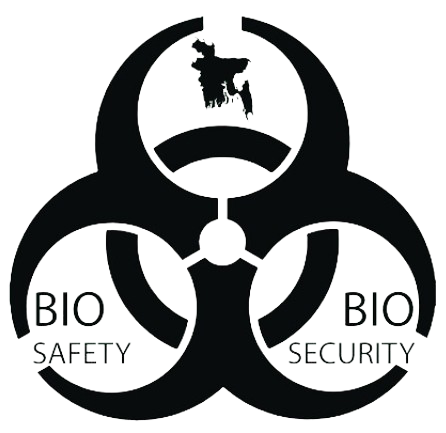BSC certification
BSC certification
Biosafety Cabinet Certification Program in Bangladesh
Since 2010 CDC, Atlanta, Country Office in Bangladesh, is supporting certification of BSCs at icddr,b and a few organizations outside icddr,b. BSCs were being annually certified by NSF accredited Field Certifier from ESCO or Intersourcing Technology Pte. Ltd. However, in 2015, the first BSC certifier, working with ESCO Dhaka office, got certified to conduct field certification of BSCs in Bangladesh. The second professional was sent by Biosafety Office, icddr,b, for NSF 49 accraditation as field certifier and the individul was accradited on January 2016. Bangladesh has three NSF accredited BSC certifier in the country now a day.
List of NSF accredited Biosafety Cabinet Certifiers in Bangladesh
BSCs are used for various biohazardous activities for the protection against harmful exposure to biological agents. Thus, it is the responsibility of the principle investigator of research or head of the laboratory to ensure that the equipment is giving its expected function. BSCs are giving users three types of protections. Those are -
- Environmental protection
- Users protection
- Product protection
It is true for Class 2 BSCs; however, Class 1 BSC is ensuring safety to the environment and for the users. It’s important that your BSC pass the certification test. The BSC may fail the test then it must be decontaminated, repaired, and recertified to be safe to the user, the environment and for the product. Decontamination of the BSC is the integral part of the certification process. This is especially important when your BSC needs to be repaired, relocated, or disposed of to avoid releasing hazardous wastes into the environment. For decontamination, vaporous hydrogen peroxide, formaldehyde or chlorine dioxide may be used. These strong chemicals help to neutralize and decontaminate any leftover biohazard materials before the units are opened for further decontamination. These chemicals are effective in decontaminating both the surface and the interior mechanisms of your BSC.
BSC certification does not guarantee that the cabinet will work as expected for ever. A certified BSC is tested periodically to make sure that it is conferring the users a safe work environment. BSC certification should only be done by a professional accredited with NSF. The equipment should be certified upon installation, after a repair, regularly for annual maintenance, and when relocating the BSC to another laboratory. The certification process may take two to four hours to be completed. The process includes testing the inflow and downflow of air through HEPA filters. Certifiers will also inspect these filters and other parts of your BSC, making repairs to them when necessary. It’s important that your BSC pass the certification test. If your BSC fails the test, it must be decontaminated, repaired, and recertified to be safe for use.
WHO developed video footage on proper usage of BSCs
This series of video footage is intended to promote proper usage of BSCs, which is no doubt the most critical biocontainment apparatus. Knowing some requests of the participants of the WHO’s basic biosafety Training-of-Trainer course in Africa last year, WHO decided to develop visual aids suitable to facilitate local training efforts. The content was developed bearing in mind the resource-limited settings.
- WHO biosafety video series - Biological safety cabinet (BSC) 1: Introduction
- Biological safety cabinets (BSCs) are primary containment devices designed to protect laboratory workers and the surrounding environment from potential exposure to infectious agents. This video provides an overview of the type of activities that should be conducted within BSCs and how BSCs work as well as different types of BSCs available, followed by installation recommendations to ensure proper containment.
- WHO biosafety video series - Biological safety cabinet (BSC) 2: Preparatory steps
- Prior to working with infectious material inside BSCs, there are a few important steps to take to make sure that work will be done safely and the cabinet is functioning correctly, including proper maintenance, disinfection and organization of workflow .
- WHO biosafety video series - Biological safety cabinet (BSC) 3: Best practices for safe usage
- It is always important to follow best practices while working in BSC to help maintain adequate airflow within the cabinet, leading to prevention of exposures and release of pathogens. Work from ‘clean’ to ‘dirty’ and dispose of contaminated waste inside the cabinet and complete the work by decontamination.
- WHO biosafety video series - Biological safety cabinet (BSC) 4: Incident management
- In the event of an emergency or cabinet malfunction, operators must be prepared to quickly react in a safe and secure manner. This video highlights the importance of a facility’s Standard Operating Procedures and spill control. It also provides guidance on a loss of cabinet power or any other emergencies.
Contact us for any further support!
